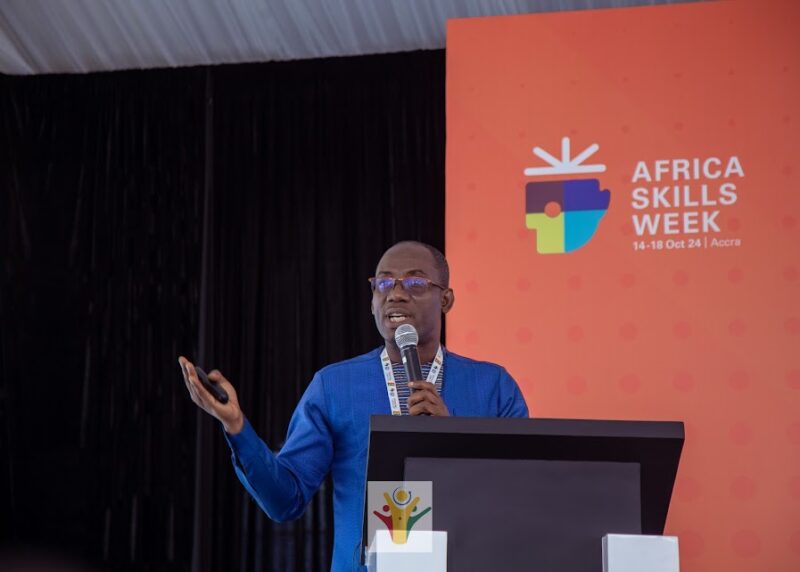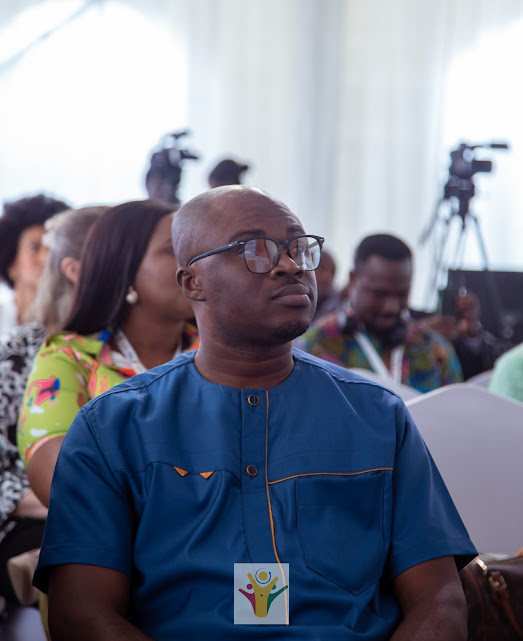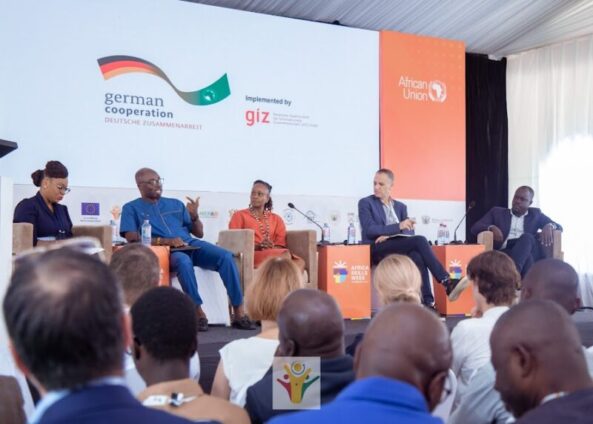Experts are urging greater collaboration between the private and public sectors to bridge the gap between technical, vocational training and Ghana’s job market.
This was highlighted at a roundtable discussion for the Africa Skills Week event organised by the Deutsche Gesellschaft für Internationale Zusammenarbeit (GIZ).
The Government of Ghana established the Technical and Vocational Education and Training (TVET) programmes to equip the country’s youth with employable skills that would attract greater industrialization and a thriving economy.
However, its implementation has faced many challenges, with a gap in the requisite skills development being one of them. Sectors such as manufacturing, technology and construction are deeply affected, driving many to seek alternative solutions to their employment gap.
The consensus shared between the experts at the roundtable event was the belief that the private sector involvement in TVET programmes would close the skills gap.
Professor Humphrey Danso, Dean of the School of Graduate Studies of the Akenten Appiah-Menka University of Skills Training and Entrepreneurial Development (AAMUSTED) indicated that training institutions and industries in Ghana had different requirements, leading to an incompatibility between the skills gained by TVET beneficiaries and the job industry.
“In the past, training institutions and industries had different requirements, leading to a mismatch between the skills students were trained in and what industries needed. By involving the private sector at every stage of the training process, we can ensure that the skills students acquire match industry requirements, thereby closing this gap”, he said.
The Chairperson for the Sector Skills Committee of the Commission for Technical and Vocational Education and Training (CTVET), Madam Constance Swaniker pointed to a lack of communication between businesses and technical institutions as a contributing factor to the low success rate.
She also stressed the need for private-sector tax breaks to attract more participation.
“It’s essential for institutions to sit down with private sector representatives and understand their needs before expecting them to absorb students”, she stated.

“I studied the dual [TVET] training system in India, where private sector tax breaks are provided to encourage industry participation. To encourage work experience learning and other initiatives for young people, the private sector needs to see clear benefits”, she stressed.
Gideon Murenga, a Senior TVET and Labour Markets Advisor working with GIZ in Kenya shared some successful examples adopted by his home country. He revealed that though collaboration had its challenges in its formative years in Kenya, it eventually paid off when the private sector witnessed the attending benefits.
“In Kenya, for instance, when the conversation about industry participation in training began, there was pushback. However, it is essential to convince them of the need to create a competent workforce. This is a journey that takes time, especially since many industries are smaller and the additional cost of training, such as consumables, can be a challenge”, he stated.

Mr Murenga also revealed that industries in Kenya participate in the selection of students for training, including aptitude tests and interviews to ensure students are placed in the right courses. He added that 50% of training takes place in the industry, where students receive practical exposure and mentorship from company employees.
Another expert, Benedict Mensah highlighted the gains his institution had made in bridging the gap between TVET institutions and industries. He revealed that his institution, Don Bosco, pairs Job Service Officers with TVET institutions to guide trainees through their TVET journey.
“They [Job Service Officers] help students choose the right skills, provide soft skills training, and collaborate with industries to ensure that what is taught in TVET centers meets the demands of the labor market”, he said.
About Pact for Skills Support to the Transformation of the TVET System Project
The Pact for Skills Support to the Transformation of the TVET System in Ghana project is co-funded by the German Ministry for Economic Cooperation and Development and the European Union and implemented by the Deutsche Gesellschaft für Internationale Zusammenarbeit (GIZ).
The project aims to reform and strengthen Ghana’s Technical and Vocational Education and Training (TVET) system by fostering public-private partnerships, strengthening the capacities of state agencies, digitalization and integration of green skills into the technical education, while developing industry-relevant curriculums, and equipping the workforce with future-ready skills. This project is designed to create a demand-driven TVET system that aligns with market needs, supporting sustainable economic growth and youth empowerment in Ghana.
About Deutsche Gesellschaft für Internationale Zusammenarbeit (GIZ) GmbH
GIZ has over 50 years of experience in a wide variety of areas, including economic development and employment, energy and the environment, and peace and security. We work with businesses, civil society actors, and research institutions, fostering successful interaction between development policy and other policy fields and areas of activity.
Latest Stories
-
GII boss commends AG’s anti-corruption approach
4 minutes -
Customs Commissioner hails GRA’s support services division as ‘Unsung Engine Room’ at strategic retreat
27 minutes -
Good gov’t can have bad nuts – Agyapa Mercer backs NSA probe, calls for accountability
38 minutes -
Let’s not entangle AG’s ORAL probe in politics – Dr Yankson
51 minutes -
GRA’s support services sivision champions strategic transformation at 2025 management retreat in Ho
57 minutes -
GES extends school selection deadline to June 25 amid Private SHS inclusion
1 hour -
7 Lawra SHS students missing, feared dead after boat capsizes on Black Volta
1 hour -
Gov’t dismissive and insensitive over nurses’ plight – Agyapa-Mercer
2 hours -
NSA still using fraud-prone system after GH¢548m scandal – MFWA raises alarm
2 hours -
Stop forcing workers to strike before honoring agreements – Justice Yankson urges gov’t
2 hours -
We may resume strike if gov’t doesn’t honour its part of the bargain – GRNMA
3 hours -
‘I will leave it to Otto Addo to assess how I fared in the Unity Cup’ – Bonsu Baah
4 hours -
Livestream: Newsfile discusses nurses strike, NSA probe, radio stations shutdown
4 hours -
Infantino: FIFA Club World Cup marks ‘new era’ for football
6 hours -
How Trump’s Africa strategy may become a double-edged sword
6 hours

